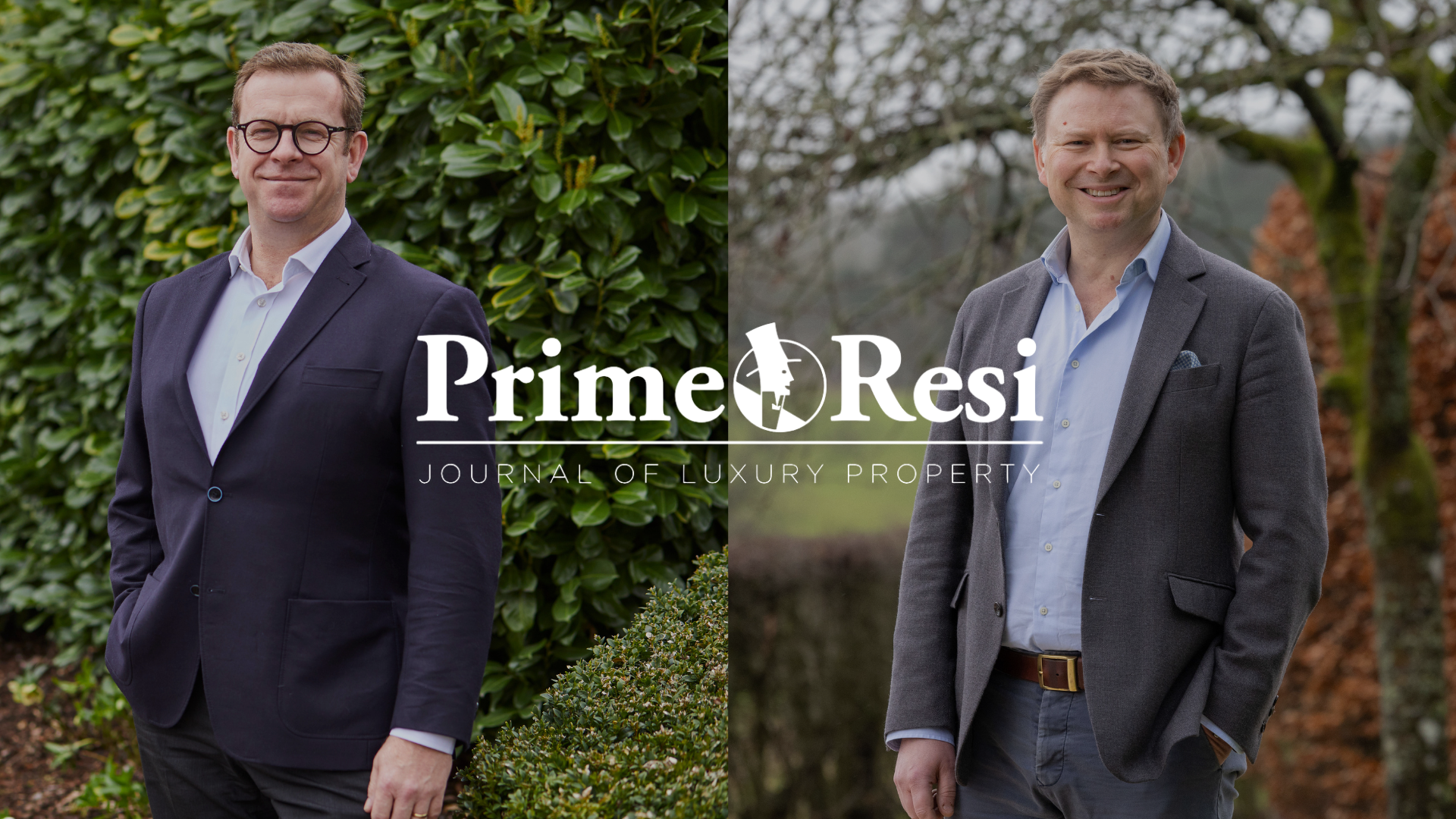PrimeResi meets the co-founders of prime property agency Middleton Advisors to discuss how the events of 16 years ago ‘broke the natural market rhythms’, and why recent changes in the industry are making things harder for buyers & sellers…
Mark Parkinson & Tom Hudson launched their prime-focused agency – Middleton Advisors – in 2008, just as the financial world went into meltdown. Having started out in an extremely tough market, the firm is now one of the most established names on the scene, counting over £1.5bn worth of property transactions to date. PrimeResi caught up with the duo to get their take on how the sector and market has evolved over the last 16 years, and the key themes to watch as the current cycle plays out…
Middleton Advisors has just celebrated its 15th anniversary; how has the buying agency sector evolved since you started out, and how much competition is there for clients right now?
MP: Buying advisory has certainly transformed since 2008. Over the last 15 years we have seen many frustrated office heads leave corporate estate agencies to set up their own firms – mostly with great success. This has greatly diversified the sales market and made it virtually impossible for unrepresented buyers to ensure they are seeing everything, meaning a buying agent or professional advisor is a necessity these days.
You set up the business only months before the GFC; how does the current market cycle compare to others you have experienced, and how do you see things playing out this time around?
MP: I think the GFC somehow broke the ’natural’ market rhythms. At the start of my career in the late 90s, someone told me that the prime property market cycle lasts 7 years. Post GFC, it has been far more erratic and unlike previous years, the prime country market no longer mirrors developments in London six months later. I am quite optimistic about the next 15 years for the UK. Yes, there will be ups and downs but if you think what we have been through in the last 15 years, not least the near collapse of the world banking system and a global pandemic, I think it has made everyone a bit more resilient.
What was one of the big lessons you learned early on, and what advice would you have for someone considering a career in acquisitions?
TH: If you can genuinely put what is best for the client above everything else (and not just say you do) the rest will follow. We’ve placed our trust in this principle since 2008.
Do you think the “race for space” has now run its course, or did the pandemic fundamentally shift market dynamics for good?
MP: One of the effects of the GFC was that whilst everyone expected buyers to pause, few expected sellers to pause in the way that they did – sellers just stopped selling. That pattern has continued every time we hit a bump in the road, and I expect it will remain. So, no – I think the race for space will continue.
The General Election is coming into view; how do you steer the agency through uncertain times, and what advice are you giving clients unsure about taking the plunge this year?
TH: I don’t see the election as uncertain at all, it’s pretty clear what is likely to happen. I think a continuation of the status quo would be more of a shock to the market. We have recently published a paper assessing the impact of a Labour Government on prime property markets. According to our research, the prospect of an incoming Labour government no longer appears to pose a significant threat to prime property markets in both London and the country.
You operate in both London and country markets; has the capital retained its status as a safe-haven for international buyers or has that changed in the last few years, and has recent legislation on overseas buyer transparency affected behaviour?
MP: For years, successive governments have targeted wealthy and international buyers. The only saving grace is that, with a few exceptions so have most other major cities around the world. For wealthy global citizens, I think this is just a fact of life and for the majority, where they choose to buy will be more about security, rule of law and personal freedoms.
Do you have any plans to expand your operations further, and if so, which areas are of interest?
TH: Our business has grown over the years by serving the needs of our client base – our London Sales department and our ‘Estates & Special Projects’ team are the best recent examples of this. And, yes, we are currently looking at a couple of new expansion opportunities that would help us broaden our service offering.
Do you have any tips for negotiating the best price for a property in the current market?
MP: Speed and certainty have always been important but always come in to sharp focus in softer market conditions.
Are there any specific London neighbourhoods or country enclaves you are expecting will outperform in the coming years?
TH: More and more of our country clients are keen on the Elizabeth line and looking in areas close to its stations. It continues to have a positive impact to the east of London and those stations along the Paddington line now have a really viable option of getting into the City that much quicker. The quality of the trains and service have also helped with the popularity.
What features and property types are proving especially popular amongst top-end buyers a) in London & b) the country at the moment?
TH: The key features of aspect, architecture, and setting remain hugely important in the country market. Post Covid, so too does fast broadband communication – which is more and more possible wherever you may be outside London. For those working 3+ days in London I think the adjacency to mainline station still has an impact on decision-making. This is in sharp relief to the view of many buyers looking to move to the country during Covid, who thought their relationship with London may come to an end.
American-style property brokers are becoming more prevalent in the UK, with more focus on individual deal-makers than traditional agency brands; has this affected the process of property searching and how do you see the estate agency sector evolving from here?
MP: As mentioned previously, the estate agency sector is changing rapidly – we think there are about 350 individual ‘brokers’ (buying and selling) in the Prime London market alone. This means that as an unrepresented buyer it’s impossible to ensure you have seen everything in your marketplace. I think the Estate Agency sector will continue to become more fragmented, and it will become increasingly difficult for vendors to decipher the wide range of options available when it comes to selling.
If you were in charge for the day, what one policy change would you make to improve the way the resi industry/market works?
MP: With the right preparation, it is completely possible for a property to be conveyed in a working day (our record is four hours for a country estate). For example, in theory it should be possible to complete all necessary searches in minutes using a digital platform. Once financing was arranged, if you were required to exchange within a week, I think the market would run much smoother!
TH: The number of impactful results that emerge in-between agreeing terms and exchanging contracts must change. Negotiations can already be tense and lengthy before a price is agreed; for significant issues to emerge after this stage can be very frustrating for all parties. I would like to see a lot more of the legal due diligence, searches etc, taking place before terms are agreed to ensure that contracts can be exchanged more quickly.
What’s the best piece of advice you’ve ever been given?
Both: We’ve grown Middleton on a simple piece of advice given to us in 2008: The best sales and marketing strategy is: ‘do a great job and be trusted’.




